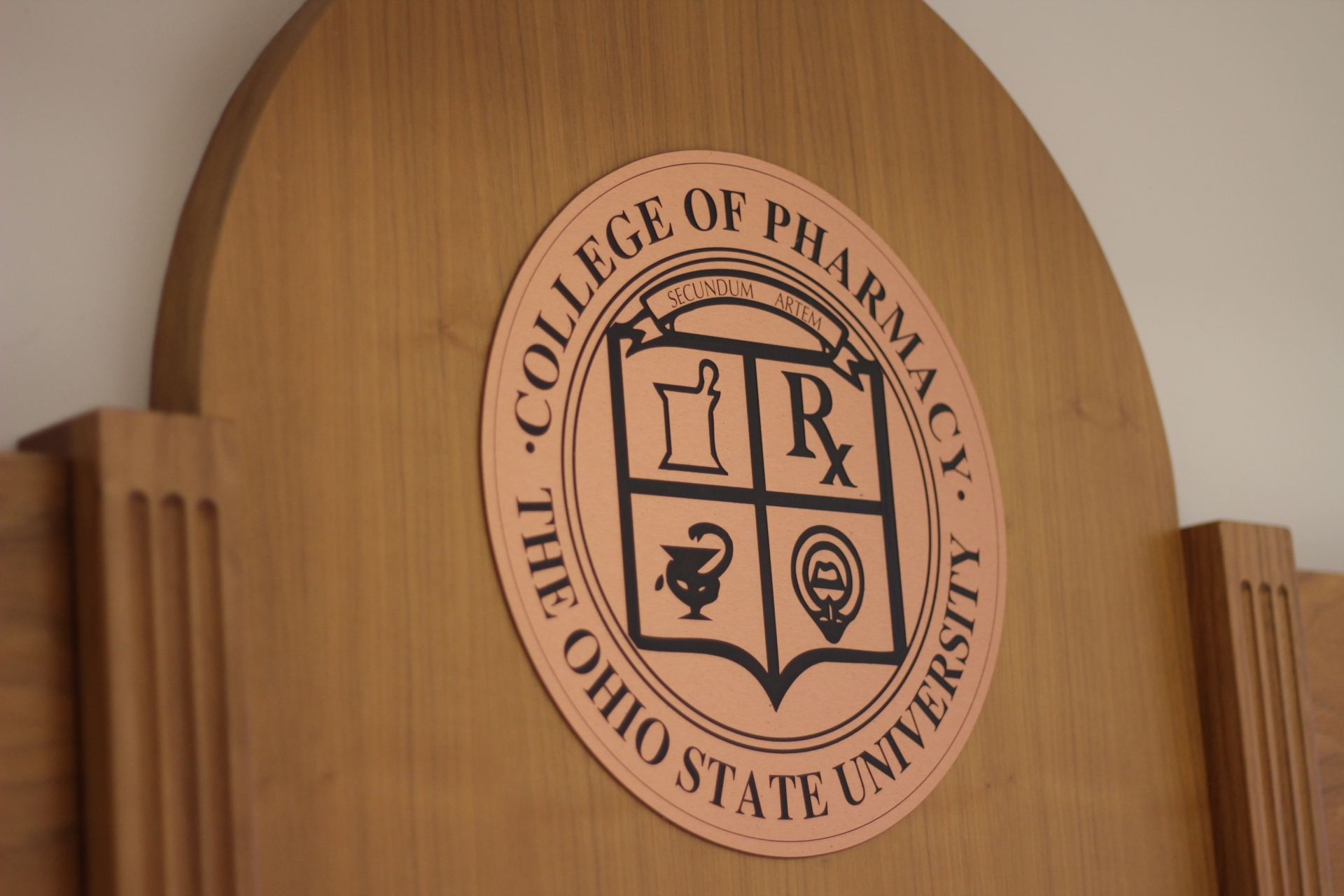
The College of Pharmacy is currently undergoing a misconduct investigation and is one of the reasons Ohio State pursued an independent look at its investigation procedures regarding retracted research. Credit: Ris Twigg | Assistant Photo Editor
A law firm examining research integrity at Ohio State released its recommendation for the university Friday, citing ways it could improve its investigations into misconduct allegations.
A large portion of the recommendations included cementing written-out specific policies on its sequestration, which is the collection of data, and internal investigation practices.
The review is in response to Ohio State seeking an independent look at its investigation procedures regarding the handling of retracted research in response to misconduct investigations and allegations involving prominent cancer researcher Carlo Croce and the College of Pharmacy.
Croce has at least 20 documented complaints against him, many of which allege data manipulation. Ohio State has cleared him numerous times, and he still works within the College of Medicine’s Department of Cancer Biology and Genetics.
The College of Pharmacy is undergoing a misconduct investigation, for which results are not yet released.
Ohio State also hired Susan Garfinkel from the U.S. Department of Health and Human Services Office of Research Integrity to help design the university’s research integrity goals.
Garfinkel’s official title of assistant vice president for research compliance will make her a key component in the implementation and oversight of the new policies.
Ropes & Gray, the law firm tasked with the Ohio State review, suggested the university do the following: establish a faculty committee on research misconduct, pass on any information regarding misconduct of another university to that institution, and adopt uniform standards for its biomedical research.
These new procedures will be finalized in the coming months, said Jennifer Yucel, the research compliance administrator and research integrity officer, and are in part a preventive response to national research trends showing an increase of misconduct and data misrepresentation.
“The research community has seen over the last 10, 12, 15 years, a fairly significant increase in the number of allegations that we’re seeing in terms of potential research misconduct, primarily in the issues around image manipulation,” Yucel said. “As part of an ongoing national movement to try to address the issues of research integrity and how do we enhance and ensure integrity as a scientific record, we have taken a number of steps that we are doing.”
In addition to the misconduct committee and formalizing regulations, the university has implemented online training for its more than 25,000 research-eligible individuals. The training is specific to research fields and consists of three to five hours of education on ethical research practices, Yucel said.
Faculty, students and staff will have until June 30 to complete the training. After that date, all incoming research personnel will be responsible for completing it before beginning research. If a researcher has not completed the training by the marker, his or her research will be blocked from continuing.
As for the university improving its referral procedures, Ohio State will implement a written policy on referrals to other schools if it finds inappropriate research came from another institution. It also will add written policy specific to sequestering data.
The university currently sequesters data involving research misconduct, meaning immediately after a misconduct meeting with a researcher, Ohio State collects written, electronic and photographic data from a researcher, but it does not have a formal policy, Yucel said. It will work to implement one in the coming months.
“We’re in the process right now of revising the research misconduct policy, and there is a very formal process at the university for revising university policy so we’re in the process of doing that right now,” Yucel said. “As that policy is revised and reviewed and adopted, all of that will be communicated to the research community.”
A misconduct committee will be created and formalized, as well. Currently, the university creates committees to investigate research misconduct as the allegations arise. This new structure will have a set committee already arranged should misconduct allegations be made.
Ohio State also is in the process of planning a research integrity summit that will be held at the end of September, Yucel said. Bringing together research stakeholders such as journals, publications and federal funding sponsors to “make sure that we’re all aligning in the same direction is something that’s very exciting and will truly be a game-changer in this area.”
Yucel said these changes are positive because they bring research integrity to light.
“All of our peers are struggling with the same types of issues, so some of things we’re doing around this area will really help provide leadership to other institutions of higher education,” she said.


